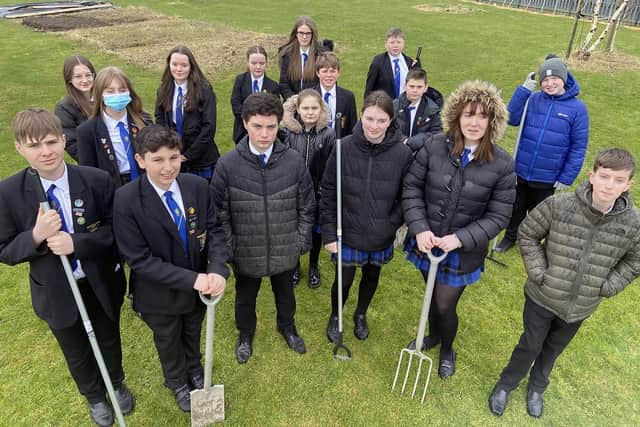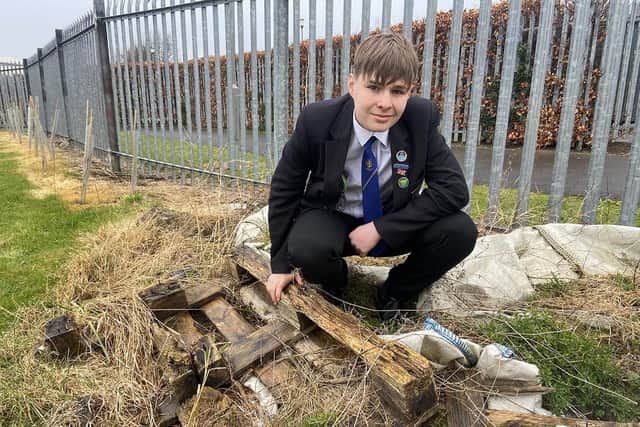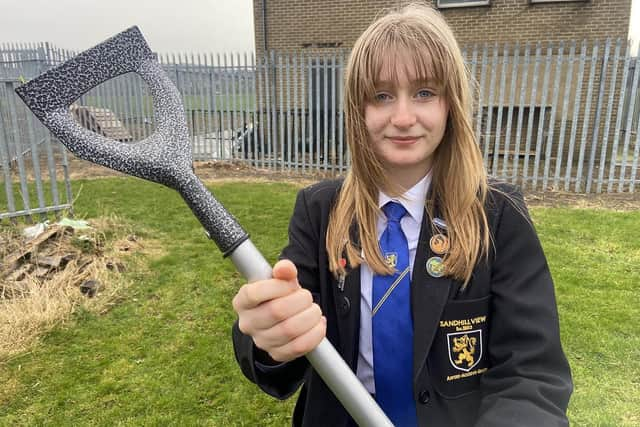Sunderland school’s Eco Garden initiative helps students learn about the process of “field to fork”
and live on Freeview channel 276
Sandhill View Academy’s Eco Club students have been converting an area of the school’s grounds into plant beds to grow a range of vegetables including potatoes, peas, lettuces, tomatoes and cabbages.
Pupils have planted the seeds, which have now germinated in their indoor pots, and will soon be ready to be transferred into the newly created vegetable plots.
Advertisement
Hide AdAdvertisement
Hide AdClub member Darcie Peters, 14, said: “I have enjoyed the project and I’m really looking forward to being able to eat the food. I think when you grow something yourself you are less likely to waste it.”
Jayden Poolan, 14, added: “It’s important to know where your food comes from and how it has been made.”
After being transferred to the planting beds, crops will be harvested for students to cook in their Food Technology lessons, take home to share with families and some of the vegetables will also be used in the school’s canteen.
Niall Aston, 13, said: “I had given some thought to where my food comes from but I know not everyone does. It’s good for your mental health to get outside of the classroom and do something practical.”
Advertisement
Hide AdAdvertisement
Hide Ad

Dylan Douglas, 14, added: “I’ve planted cabbages, sweet potatoes and chillies and I can’t wait to eat them.”
The Eco Club hope the initiative will help the school to achieve the prestigious Royal Horticultural Society School Garden Awards – five levels of recognition for schools which have utilised their grounds as a learning resource to promote cultivation and sustainability.
Geography teacher Aidan Hodgson, who oversees the Eco Club, said: “I think it is really important that children understand where their food comes from and the cultivation process from field to fork. What better way to do this than growing your own food.


"It also provides a practical setting for some students to thrive in a different environment.
Advertisement
Hide AdAdvertisement
Hide AdThe garden is just one of a number of initiatives run by the Eco Club, including planting 450 trees and creating a worm composter to reduce waste.
Mr Hodgson added: “It’s important for the students to learn about sustainability and the trees will help provide wildlife corridors and offset our carbon emissions.”
A message from the editor:


Support your Echo and become a subscriber today.
Enjoy unlimited access to all of our news and sport, see fewer ads, experience faster load times, test your brain with daily puzzles and get access to exclusive newsletters.
Comment Guidelines
National World encourages reader discussion on our stories. User feedback, insights and back-and-forth exchanges add a rich layer of context to reporting. Please review our Community Guidelines before commenting.
